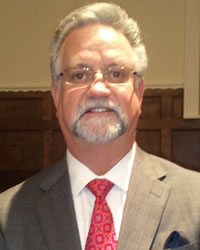
We acknowledge with thanksgiving that the Lord has used many people through the years to preserve the Scriptures and translate them into our language. John Wycliffe was one of those men. He has been called “The Morning Star of the Reformation.” He lived in the 14th century, more than a hundred years before the invention of the printing press and ministered in an age of great spiritual darkness. Christianity in England was all but buried beneath the mass of popery, ignorance and superstition when God raised up this valiant man.
Wycliffe was a man to whom God gave unusual abilities and gifts. Realizing the need to have the Word of God written in English and available to the common man, he purposed to translate the whole Bible and give it to the people of England so that every person could read the Scriptures for themselves. While he translated the New Testament alone, some of his friends assisted him in translating the Old Testament. The massive task was completed in 1382, just two years before his death.
In addition to realizing that it was essential that the Word of God be available to everyone, he also recognized the great need of preaching the Scriptures. He once told some students, “the highest service that a man may attain to on earth is to preach the Word of God.” Those who learned from him were called “Lollards” (poor preachers) and he sent them out, two by two, with this command, “Go and preach the gospel. It is the sublimest work.” Though he encountered much persecution, he was preserved from martyrdom and died peacefully in 1384. Forty-one years later, however, by order of the popish Council of Constance, his bones were unearthed, burned into ashes and cast into a stream. One old writer commented, “This stream has conveyed his ashes into Avon, Avon into Severn, and Severn into the narrow seas, and they into the main ocean. And thus the ashes of Wycliffe are the emblem of his doctrine, which is now dispersed all the world over.”
Numerous copies of Wycliffe’s translation of the Scriptures were circulated, much to the dismay of the Catholic Church. One of the monks, a seminary professor who was in great disappointment over the availability of the Bible to the common man, said the following. “John Wycliffe hath translated the gospel out of the Latin into English which Christ had entrusted with the clergy and doctors of the Church that they might minister it to the laity and the weaker sort, according to the state of the times and the needs of the people. So that, by this means, the gospel is made vulgar, and made more open to the laity, and even to women who can read, than it used to be to the most learned of the clergy and those of the best understanding! And what was before the chief gift of the clergy and doctors of the Church, is made forever common to the laity.” Thank God for giving us His written Word and raising up men like Wycliffe who was used by Him to ultimately make the Holy Scriptures available to us today.